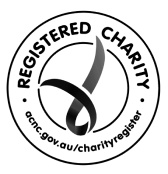While Dhul Hijjah may have come to an end, let your generosity continue to shine
Make a difference through regular giving
While Dhul Hijjah may
have come to an end,
let your generosity continue to shine
Make a difference through regular giving
Your acts of kindness can transcend the sacred month. embrace the spirit of giving and make a lasting impact today.
The impact of your donations in 2022
1300+ Orphans Sponsored
$8.6 Million+ in Donations
12 Sustainable projects impacting 83,018 people
229,384 People Were Given Emergency Relief
The Prophet (P.B.U.H) said
"Give charity without
delay, for it stands in the way of calamity
(Al-Tirmidhi)
Be apart of the impact, visit our main site and donate today
Frequently Asked Questions
When a humanitarian crisis hits a country, whether disaster or conflict, fast delivery of the right kind of aid is needed in order to save lives.
Islamic Relief’s humanitarian mission is to effectively and efficiently respond and serve disaster-affected populations in a timely manner. We achieve this through preparedness measures, the management of standby disaster response teams, and the stockpiling of goods.
When a humanitarian crisis occurs, Islamic Relief makes a decision on if and how to respond. This decision is based on a number of factors, including the type and level of need of those affected, access, partnerships we already have in the area affected, and overall security.
The sponsorship money must be spent on ensuring the children’s physical needs- such as food, water, health care, clothing and shelter- are met, as well as ensuring their education through their childhood, such as school funds, uniforms, school books and pencils.
Sponsorship money is paid to the child’s guardian every quarter. Children and their guardian are frequently monitored to ensure that they are receiving the full benefits of sponsorship. This may include health checks and education for school-aged children.
We work up to six months in advance preparing our Ramadan programme. We organised with food suppliers, identifying people most in need and making sure the food in the pack meets nutritional needs and local cultural expectations. We deliver to 34 countries with all the different variation in each country. Delivery is at the start of Ramadan. You can give your donation to the food packs at any time during the Ramadan Appeal. This means that even if you donate in the last 10 days, we ensure that a family has received their food pack on time.
- Water supply
- Sanitation and hygiene
- Shelter and non-food items (NFIs)
- Refugee/internally-displaced person (IDP) camp management/temporary settlement
- Education
- Cash-based interventions
We deliver emergency aid and supports to the people who are most affected and most vulnerable, irrespective of their race, ethnicity, religion, culture or nationality. Among the most affected and vulnerable are children, people with disabilities, elderly persons and women heads of households who are prioritised in receiving aid.
You can contact us at here






